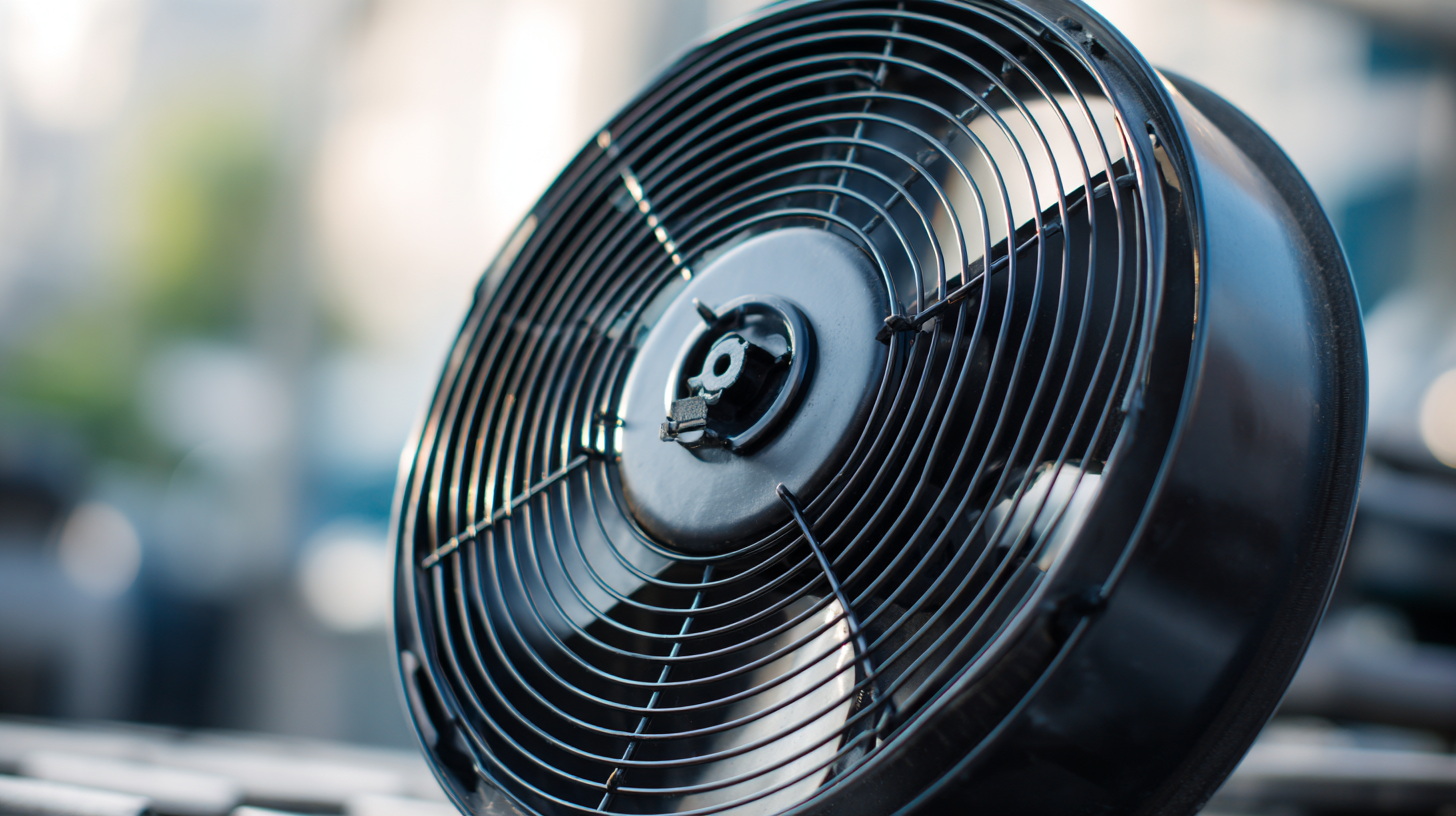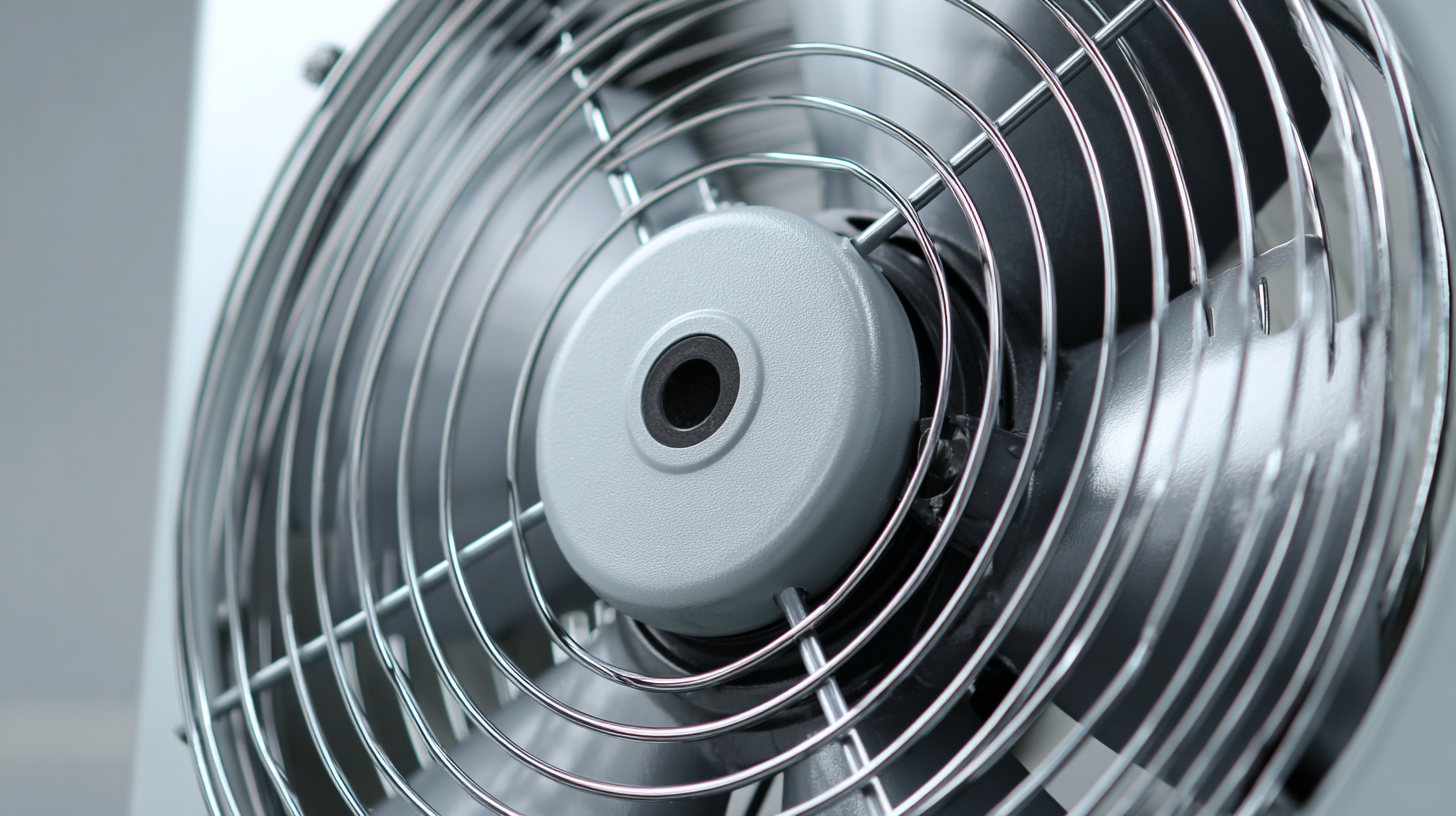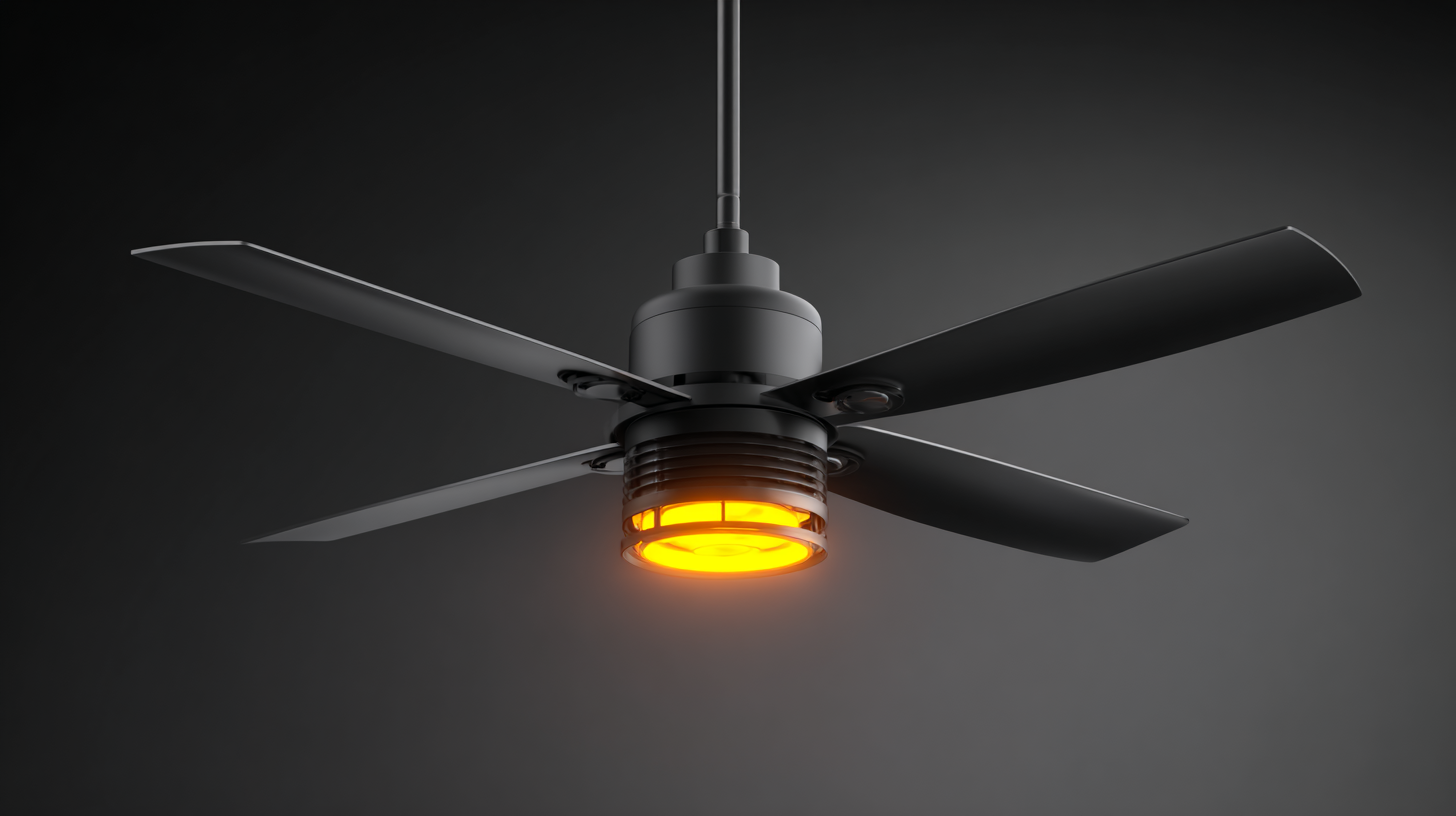




As we approach 2025, the demand for high-performance AC fan motors continues to surge, driven by the increasing need for energy efficiency and sustainability in HVAC systems. According to the latest market analysis by Industry Research, the global AC fan motor market is projected to reach USD 5.8 billion by 2025, growing at a CAGR of 6.2% from 2020. This growth is fueled by advancements in technology and stricter energy regulations, emphasizing the necessity for manufacturers to optimize motor performance. Examples from leading companies illustrate the urgency to innovate, as efficient AC fan motors can significantly reduce energy consumption and operational costs. Thus, understanding the underlying issues impacting AC fan motor performance is critical for stakeholders aiming to navigate this rapidly evolving market landscape effectively.

When it comes to achieving optimal performance in AC fan motors, several key factors play a crucial role in determining efficiency and longevity. One of the main aspects is the motor design, which can significantly influence energy consumption and output. According to the Department of Energy, poorly designed AC motors can waste as much as 10-30% more energy compared to high-efficiency models. Utilizing newer technologies, like Permanent Magnet Synchronous Motors (PMSMs), can enhance performance by improving efficiency up to 30% when compared to traditional induction motors.
Another essential factor is the ambient operating conditions, including temperature and humidity levels. Research from the American Society of Heating, Refrigerating and Air-Conditioning Engineers (ASHRAE) indicates that high ambient temperatures can lead to overheating, resulting in reduced motor life. Additionally, proper maintenance routines, such as regular cleaning and lubrication, can further enhance the performance and reliability of AC fan motors. The National Electrical Manufacturers Association (NEMA) suggests that routine maintenance can extend motor lifespan by as much as 50%, underscoring the importance of proactive care in maintaining peak performance.
AC fan motors are critical components in ensuring efficient cooling systems. However, several common problems can adversely affect their performance. One major issue is electrical failure, often resulting from overheating or poor connections. According to industry reports, up to 30% of AC motor failures are attributed to overheating, which can stem from blocked airflow or aging components. Regular maintenance can help identify these risks early, preventing potential breakdowns.
Another frequent problem is the wear and tear of bearings, which can lead to increased friction and noise. As reported by the National Association of Home Builders, bearing failure accounts for nearly 20% of motor issues across residential systems. To mitigate this, ensuring regular lubrication and timely replacement can enhance motor longevity.
**Tip:** Keep your AC filter clean. A clogged filter can restrict airflow, causing the motor to work harder and leading to overheating.
**Tip:** Schedule annual maintenance checks. Professional inspections can catch early signs of wear, helping you avoid unexpected failures and improve energy efficiency.

When it comes to air conditioning systems, selecting the right AC fan motor is crucial for optimal performance. There are primarily three types of AC fan motors: permanent split capacitor (PSC) motors, shaded pole motors, and variable speed motors. Each type has its unique applications based on efficiency, control capabilities, and operational environments. While PSC motors are commonly used in residential systems due to their reliability and modest cost, shaded pole motors are often found in smaller units due to their simplicity and low power requirements. Variable speed motors, on the other hand, offer superior energy efficiency and are ideal for modern HVAC systems designed to maintain consistent comfort levels.
When choosing an AC fan motor, consider its application and environment. Tip: Always match the motor's horsepower and speed ratings with the specifications of the existing system to avoid performance issues. Additionally, ensure that the motor is compatible with your control system, as this can affect overall efficiency and reliability. Tip: Periodic maintenance, including lubrication and inspection of electrical connections, can extend the motor's lifespan and enhance performance. By understanding the various types of AC fan motors and their applicable uses, you can make informed decisions that ensure effective cooling solutions for your space.
To ensure optimal AC fan motor efficiency, regular maintenance is essential. Start by keeping the motor clean and free from dust and debris, as accumulated dirt can impede airflow and cause overheating. It’s advisable to periodically inspect the fan blades and motor housing for any signs of wear and tear. A clean motor not only runs more smoothly but also extends its lifespan, reducing the need for costly repairs or replacements.
Another crucial aspect of AC fan motor maintenance is lubricating moving parts. Over time, the lubrication can wear off, leading to increased friction and decreased efficiency. Use a suitable lubricant for your specific motor type and apply it according to the manufacturer's recommendations. Additionally, check the electrical connections and wiring for any signs of damage.
Ensuring that all components are in good condition can significantly enhance the performance of your AC system, providing consistent cooling during the summer months. Taking these maintenance steps can improve your air conditioning unit's efficiency and help you avoid unexpected breakdowns.
When upgrading your AC fan motor, there are several key considerations that can significantly influence performance and energy efficiency. According to the U.S. Department of Energy, systems that utilize high-efficiency motors can consume up to 30% less electricity than standard models. Therefore, selecting an Energy Star-rated motor can not only enhance the comfort of your space but also lead to substantial cost savings over time.
Another important factor is the motor's horsepower (HP) rating, which directly affects airflow and overall cooling efficiency. A data report from ASHRAE indicates that properly sized motors contribute to a better cooling capacity and lower operational noises, enhancing indoor air quality. Additionally, investing in a variable speed motor can provide more precise temperature control and reduce energy consumption, as these systems adjust their speed according to the cooling demand, resulting in smoother performance. Focusing on these aspects when upgrading your AC fan motor will ensure you make a well-informed choice that aligns with your efficiency goals.



